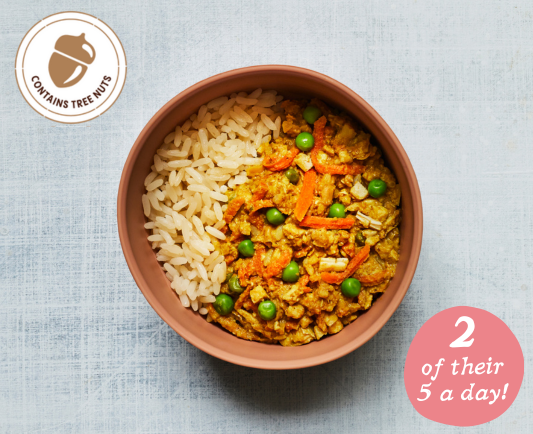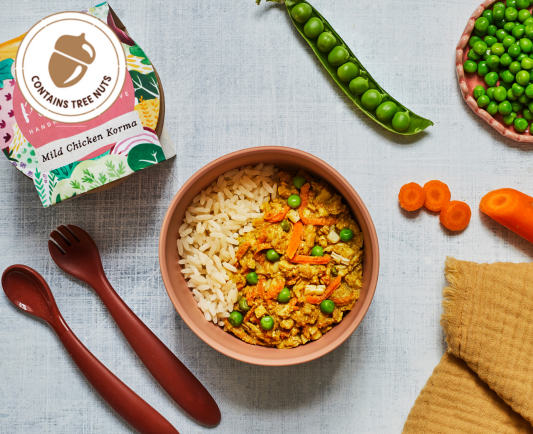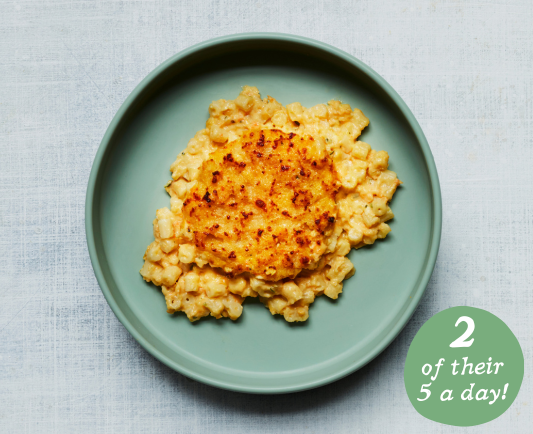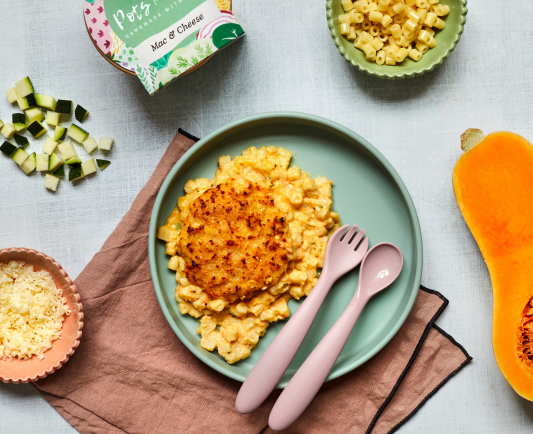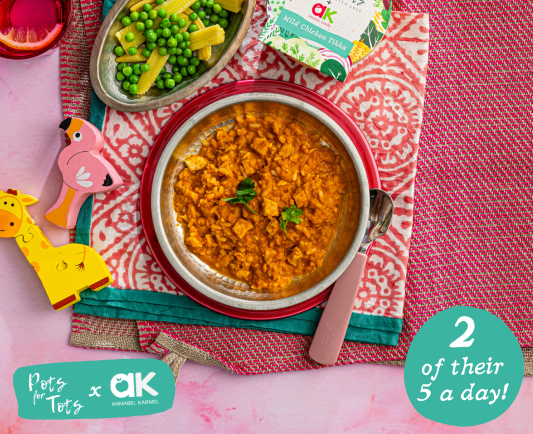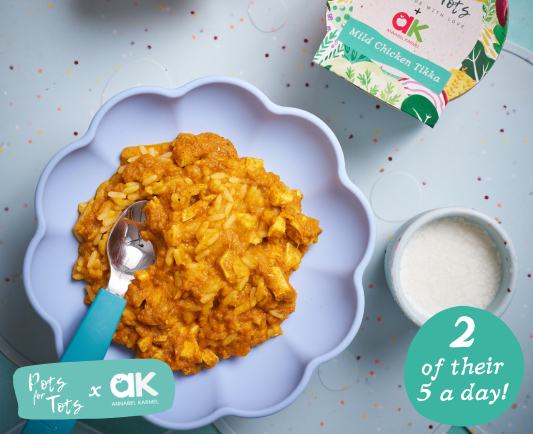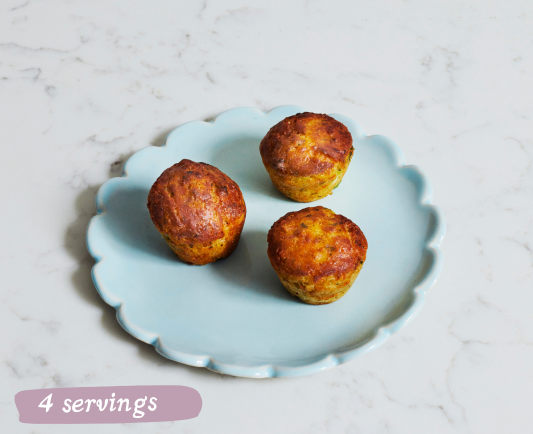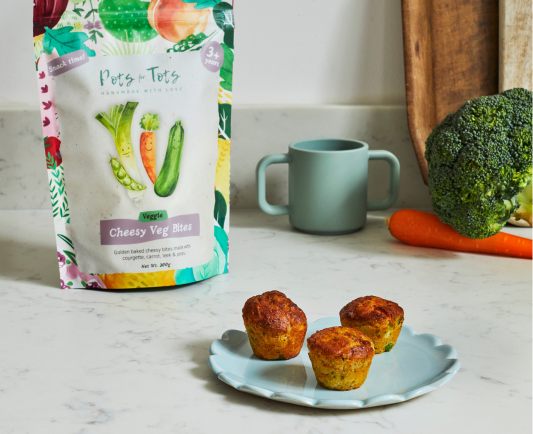At Pots For Tots and The Family Food Co., we recognise the importance of supporting you with reliable and evidence-based information to help you navigate the challenges of feeding your little ones. That’s why we have Lucy, aka The Children’s Dietitian, on board to not only provide expert advice and tips, but to work with us on our meals and recipes to ensure they are as nutritionally balanced as possible.
We understand that feeding children can be stressful and confusing, especially with so much information available online - that’s why we’ve introduced Instagram Q&A sessions with Lucy, giving you the opportunity to ask Lucy any questions you may have and receive the best advice for your child’s needs. Here’s what you asked Lucy last week …

How much banana is too much banana? My little one eats one every day!
So, this is a tricky one to answer without knowing much more about your child’s age, weight and overall diet. But… I have lots of parents raise concerns about the consumption of too much potassium from bananas - try not to worry too much as in reality, your child would have to consume something like 5+ bananas a day!
I’d say aim for no more than 2 of your child’s 5 a day from bananas - just to allow room for exploration of different fruits, vegetables and nutritional variety.
Talking of bananas, have you seen the new Pots For Tots Mini Banana Pancakes?

My toddler just wants to eat cereal, but I worry it’s not nutritious enough. Any tips?
Firstly, I’d say that cereal gets such a bad rap when in fact children’s cereals are often very well fortified with some key nutrients like Iron, Zinc, B-vitamins, and Folic Acid. If your child is happy to accept lower sugar and salt versions too then great!
If you’re struggling with a fussy stage, I’d consider some of the options below to try:
- Rotate how often the cereal is on offer at mealtimes - just to prevent burnout ( a very common toddler eating phenomenon). You can set a clear boundary by instead offering a choice with what else is available e.g. “I’m afraid we haven’t got cereal on the menu this morning, we can have it tomorrow. Would you like porridge or toast instead?”
- Pair cereals with nutritious extras to add on top e.g. ground nuts or seeds, different fruits, yoghurt, chia jam, or even different coloured milk e.g. blend fruit with milk for fun pink/orange milk option.
- Offer exposure foods alongside the preferred cereal!

Should we offer alternative meals if they won't eat what we've given them?
My general answer to this question is no - ideally not. Other than the obvious burden of additional food preparation, it often means that toddlers quickly learn they can refuse the meal they don’t want in place of something they do. This can quickly decrease accepted food ranges, and create a persisting power struggle at mealtimes.
To combat worry about intake:
- I’d always aim to ensure a preferred food is included in a child’s meal, so there is something they will (usually) eat.
- Keep clear boundaries at mealtimes e.g. once it’s clear the mealtime is finished, end it. You can always offer supper before bed, ideally, this should be at least 30-45 minutes after a mealtime
- Remember to offer your child some autonomy - let them choose something that can come to the mealtime. Offering a choice between two options works well for young children
- Finally, remember children are great at regulating their appetite and complete meal refusal (especially the evening meal) can be common in the toddler years, especially if they have 'front loaded' with their intake earlier in the day.

Want my toddler to eat what we eat but we also like to have dinner after she's in bed.
This is a fantastic question, and a dilemma often raised by parents who appreciate the benefits of eating with children. Whilst there is no easy answer to this because it’s difficult to have it both ways, suggestions I tend to discuss with families include:
- Is there scope to offer the ‘main’ family meal at lunchtime on some days e.g. the weekend?
- Can you make the meal you want to share and offer to your child whilst you have a very small ‘warm up’ portion with them? e.g. just take a few spoons for yourself
- Can you try and share other meals together more easily e.g. breakfast, certain snack times

2.5 years is getting pretty veg averse, I’m worried about her getting enough nutrients!
Firstly, you’re not alone! It’s common to see a pattern of vegetable refusal in the toddler years - their trickier tastes and texture pose a challenge for toddlers who carve consistency and safety with their food choices.
In terms of nutrients, here are some tips that may help or reassure
- There are very few nutrients in vegetables that children can’t get from fruit. Does your child include plenty of fruit in their diet? Can you include lots of different colours of fruit (as this means different nutrients are provided)?
- Are there ways you can include vegetables for peace of mind e.g. avocado or spinach in smoothies, mixed vegetables blended into pasta sauce, grated or mashed vegetables in packs, fritters…etc?
- I know everyone’s heard it, but do keep offering. Ongoing exposure is key to long-term acceptance.

My child's always been fussy with cooked foods, but no longer eats anything cooked. What do I do?
Some children who are fussy or selective eaters are known to have sensory sensitivities which affect their food choices. Whilst it is very difficult to say without more information, factors like refusal of certain textures, tastes, and temperature can be a sign your child is more sensitive to this.
Depending on how limited your child’s diet is and if your toddler is refusing to eat, I would suggest a discussion with a feeding specialist like a Paediatric Dietitian. In the meantime, does your child have any foods within their diet that you can offer cooked alongside their preferred uncooked version e.g. cereal with warm milk instead of cold milk, cooked carrots alongside raw carrots for example.

Toddler all of a sudden constipated, foods to help? Very fussy eater too.
Toddler constipation is exceptionally common, and the first thing to say is that if your toddler is already constipated and struggling to pass stools then a GP is the first port of call to support with any necessary laxative medication. Diet and fluid adjustments can help prevent and somewhat manage constipation in children, but often cannot be solely used to treat a child who is already constipated.
In terms of tips to help prevent constipation, and manage it alongside any medications required, here are some tips:
- Kiwi is a very well evidence fruit to support constipation management. It works in two ways to help the passage of stool through the bowel. Can you include this in your child’s diet?
- Other fruits can be helpful too - pears, peaches, plums and prunes
- Check your child’s fibre intake - children aged 2-5 years should have around 15g per day. Too little and too much can contribute to constipation. Great fibre sources include fruits, vegetables, beans, lentils, breakfast cereals and oats.
- Encourage regular fluids- aim for 6-8 cups of water per day, and be mindful that if you’re trying to increase the fibre in your child’s diet do this gradually. Too much additional fibre too quickly can cause upset to how often a child passes stools.

Thanks to Lucy for taking the time to answer these questions! Make sure to follow Pots For Tots, The Family Food Co. and Lucy on Instagram to stay up-to-date with our Q&A sessions and get the advice and tips you need to make feeding your children a little easier.

